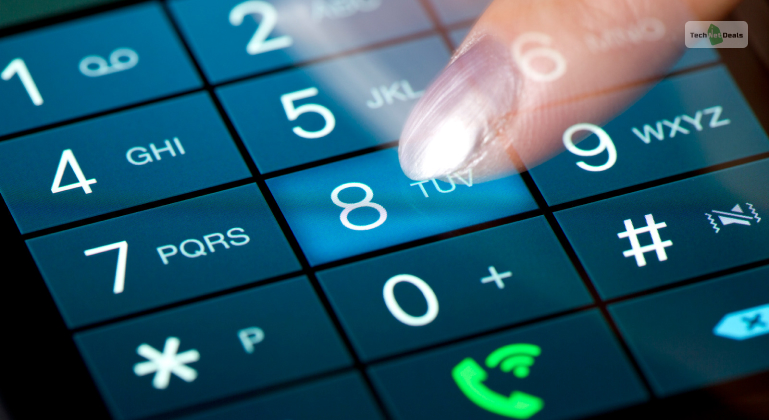
Living without a smartphone is unthinkable these days. This modern device has made life easy with its countless functionalities and convenience for various tasks such as mobile banking and storing personal data.
However, this convenience comes with its own set of challenges, particularly when it comes to protecting our devices from security breaches and data theft.
It’s crucial to be vigilant and take necessary precautions to safeguard our personal information and prevent hackers and other malicious individuals from accessing our data. In this article, we will explore five effective ways to enhance the security of our mobile devices.
How To Protect Your Personal Data On Your Mobile Phones?
Even though these functionalities are useful, the information on your device is vulnerable to physical attacks and online threats. However, there are ways to minimize that.
Log Out All Of Your Apps
To protect your personal data on mobile devices, it’s essential to log out of your apps when you’re not using them. While staying logged in may be more convenient, it increases the risk of compromised accounts.
When you’re still logged in to social media or mobile banking apps and your device is lost, hackers or malicious individuals can access your personal information. Logging out of your accounts can prevent unauthorized access and protect your data and identity.
Additionally, logging out of your accounts on shared devices like tablets or computers can prevent other users from accessing your personal information. Logging out after each use is the best way to ensure your data remains secure.
Set A Strong Password Or PIN
Setting a strong password or PIN is crucial in securing your mobile device. Your password should be difficult to guess, and you should avoid using easily guessable information such as your name or birth date.
A strong password should contain a mix of uppercase and lowercase letters, numbers, and special characters. Avoid using the same password for multiple accounts, as this can make it easier for hackers to access your personal information.
Changing passwords regularly, every few months, or immediately if compromised, is another important consideration. If a password is shared with someone for work purposes, it should be changed once that person no longer requires access.
To enhance security further, consider biometric authentication, which adds an extra layer of protection and makes it harder for someone to gain unauthorized access.
Update Your Device Regularly
Keeping your mobile device up-to-date is critical in maintaining its security. Regular updates can detect and help with spyware removal or address security vulnerabilities.
Updates can also offer bug fixes, performance improvements, and new features, ensuring your device runs smoothly and efficiently.
To check for updates, go to your device’s settings and look for the software update option. Install any available updates as soon as possible to safeguard your device against the latest risks.
By staying on top of updates, you can keep your mobile device secure and functioning at its best.
On iPhone:
- Click on the Settings button
- Navigate to General
- Click Software Update
- Select Automatic Updates
- Toggle on the Download and Install iOS Updates option.
Refrain From Using Public Wi-Fi
Using public Wi-Fi can be both convenient and dangerous. Without the need for authentication, cybercriminals can easily access your sensitive information and use it for malicious purposes.
This includes intercepting data like passwords, credit card details, and personal messages, which can be harmful to your online privacy and security.
To stay safe, it is best to avoid public Wi-Fi altogether. However, if you must use it, connect to a trusted network that requires a password or encryption.
Another option is to use a Virtual Private Network (VPN) to encrypt your online activity and safeguard your privacy and security while using public Wi-Fi.
Encrypt Your Data
Encrypting your data is another way to protect your personal information and ensure it’s only accessible to authorized parties. Encryption works by converting plain, readable data into an unreadable format that can only be deciphered with a key or password.
Most mobile devices come with built-in encryption features that you can enable to protect your data. This feature encrypts all data stored on your device, such as photos and documents. No one can have unauthorized access to your device and data if your device is lost or hacked.
To enable encryption, go to your device’s settings and click the encryption option. Remember that encryption does not provide 100% protection, but it adds an extra layer of security to your data.
By using these techniques, you can help keep your personal information secure on mobile devices. Additionally, you can use solutions such as Clario to further enhance your mobile device’s security.
Use A VPN
If you are not sure of the network’s security status, then use a VPN or Virtual Private Network. Make this mandatory. This will make sure that you are securely connected to a network.
Moreover, this will shield all your browsing activities from the prying eyes. This is one of the best options when you are browsing less secure sites. These are not expensive and protect all your private information and website traffic.
Install Antivirus
The apps you install on your phone or the files you download might contain malicious code. Once you launch it, this can send all your private information to criminals, making you vulnerable.
To ensure this doesn’t happen, it is best to install an antivirus application and improve security. Some applications have more functionalities, like erasing the data if you lose your phone, blocking and tracking unknown callers who can threaten you.
Moreover, it informs you about unsafe apps and often deletes cookies and your browsing history. Cookies are software tokens that store all your login information, which can be leaked if someone maliciously accesses them.
Is Your Device Secure?
Remember, being proactive about mobile security is crucial to safeguarding personal information and ensuring that mobile devices remain a trusted tool in our daily lives.
Implement the above measures and embark on the journey of protecting personal data from theft and other security threats.
It could be challenging to secure all your data, but it should be your first priority. You will face new challenges every day, but it is essential to stay clear of all kinds of suspicious activities on your device.
Read Also:






